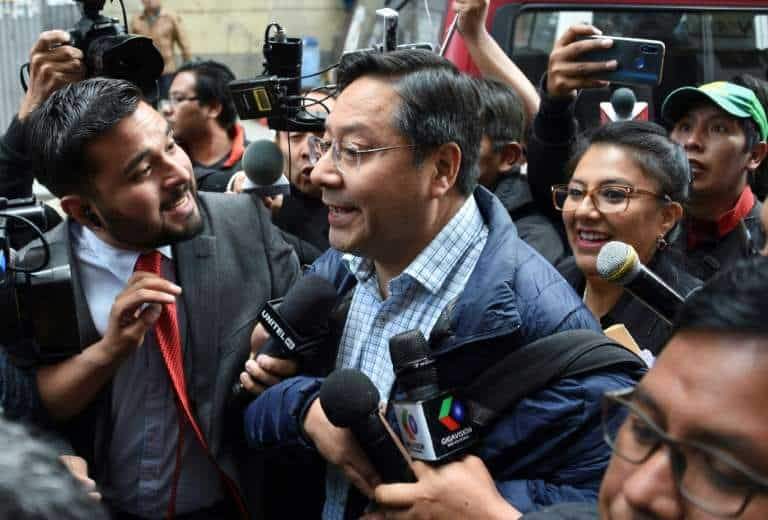Bolivia election campaign underway with Morales in exile

Bolivia's May 3 general election campaign officially got underway Monday as the deadline for presidential and legislative candidates to register passed, with exiled former president Evo Morales seeking a seat in parliament.
Morales, who resigned in November after almost 14 years leading the landlocked South American country, is barred from standing for president but has said he wants to be a legislator.
The 60-year-old is in exile in Argentina but has vowed to return to his homeland to lead his Movement for Socialism (MAS) party's campaign, although a warrant has been issued for his arrest.
MAS led the most recent opinion poll with 26 percent of voter intentions and Morales has since named former economy minister Luis Arce as the party's candidate.
As well as a new president, Bolivians will elect 36 senators and 120 deputies.
The results of the October 20 election were annulled after an audit by the Organization of American States found evidence of vote-rigging in Morales's favor.
That revelation led to the military withdrawing its support for the former trade unionist and he subsequently resigned on November 10 after three weeks of protests against the election result by opponents accusing Morales of fraud.
"As of now candidates and political alliances can start to approach the citizenry and win more support," said Salvador Romero, president of the supreme electoral court (TSE).
All six previous TSE magistrates were detained following the October election, accused of rigging the results.
Morales himself took to Twitter on Monday to denounce the interim government for allegedly trying to apprehend his lawyer Wilfredo Chavez as he sought to register the ex-president as a parliamentary candidate.
Morales was Bolivia's first indigenous president but since his exile has been accused by the interim government of sedition and terrorism for allegedly urging his supporters to lay siege to major cities including La Paz.
Besides Arce, five other presidential candidates have registered, including conservative interim leader Jeanine Anez, who initially had insisted she would not stand. She was running fourth in the last opinion poll with 12 percent.
Centrist former president Carlos Mesa, who was beaten by Morales in the October vote, is standing again.
Alongside right-wing candidate Luis Fernando Camacho, Mesa was joint second on 17 percent in the poll.
Evangelical preacher Chi Hyun Chung and conservative ex-president Jorge Quiroga (2001-2002) have also registered to stand.
Just as in the last election in October, opponents to Morales have failed to form a united front despite meeting on Saturday in a bid to do so.
Those five candidates are in a "narcissism contest" according to Waldo Albarracin, dean at the San Andres University, one of the most important in Bolivia.
In the first round of voting, a candidate needs to win an absolute majority or gain at least 40 percent with a minimum 10-point lead over the nearest challenger.
If not, there will be a run-off for the top two candidates on June 14.
Photo: © AIZAR RALDES Campaigning is underway for Bolivia's May 3 elections, with Luis Arce running as presidential candidate for the MAS party











